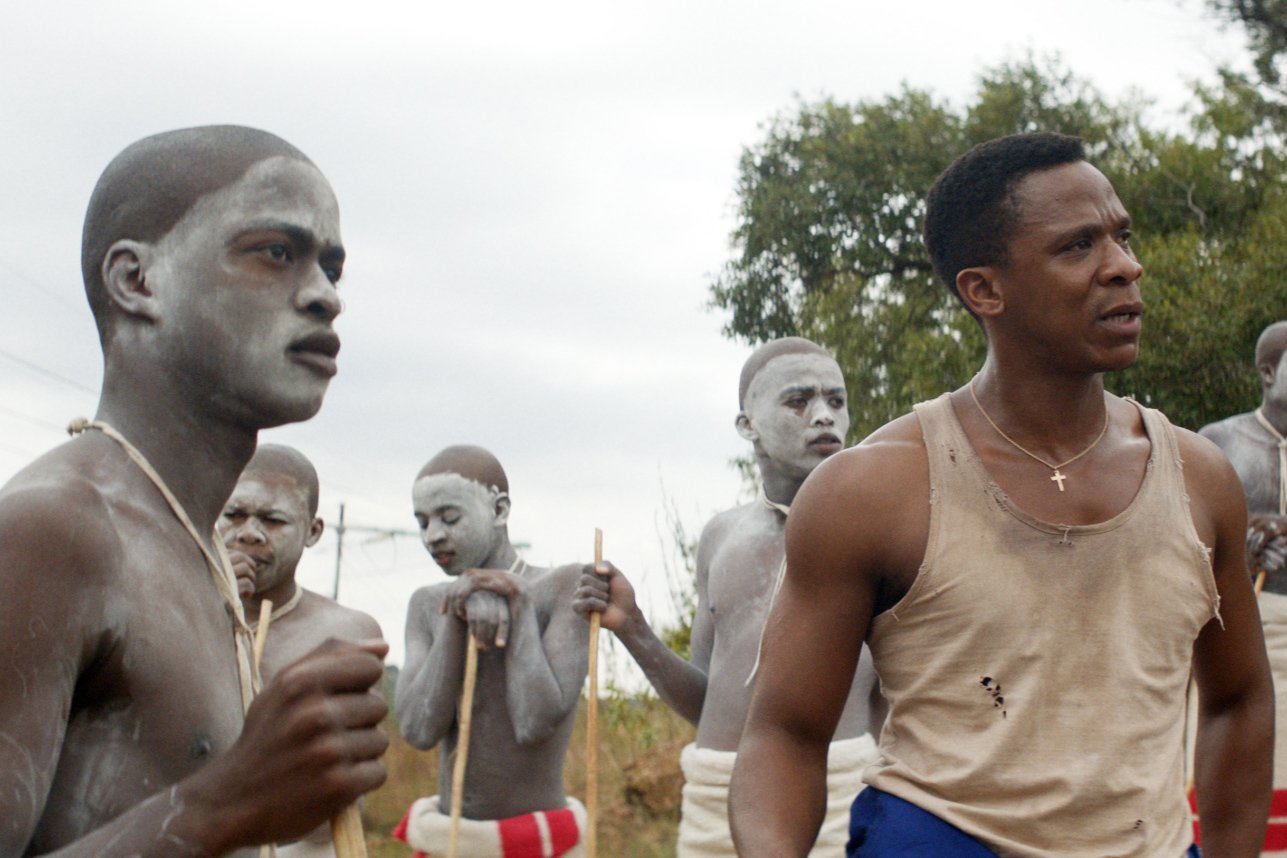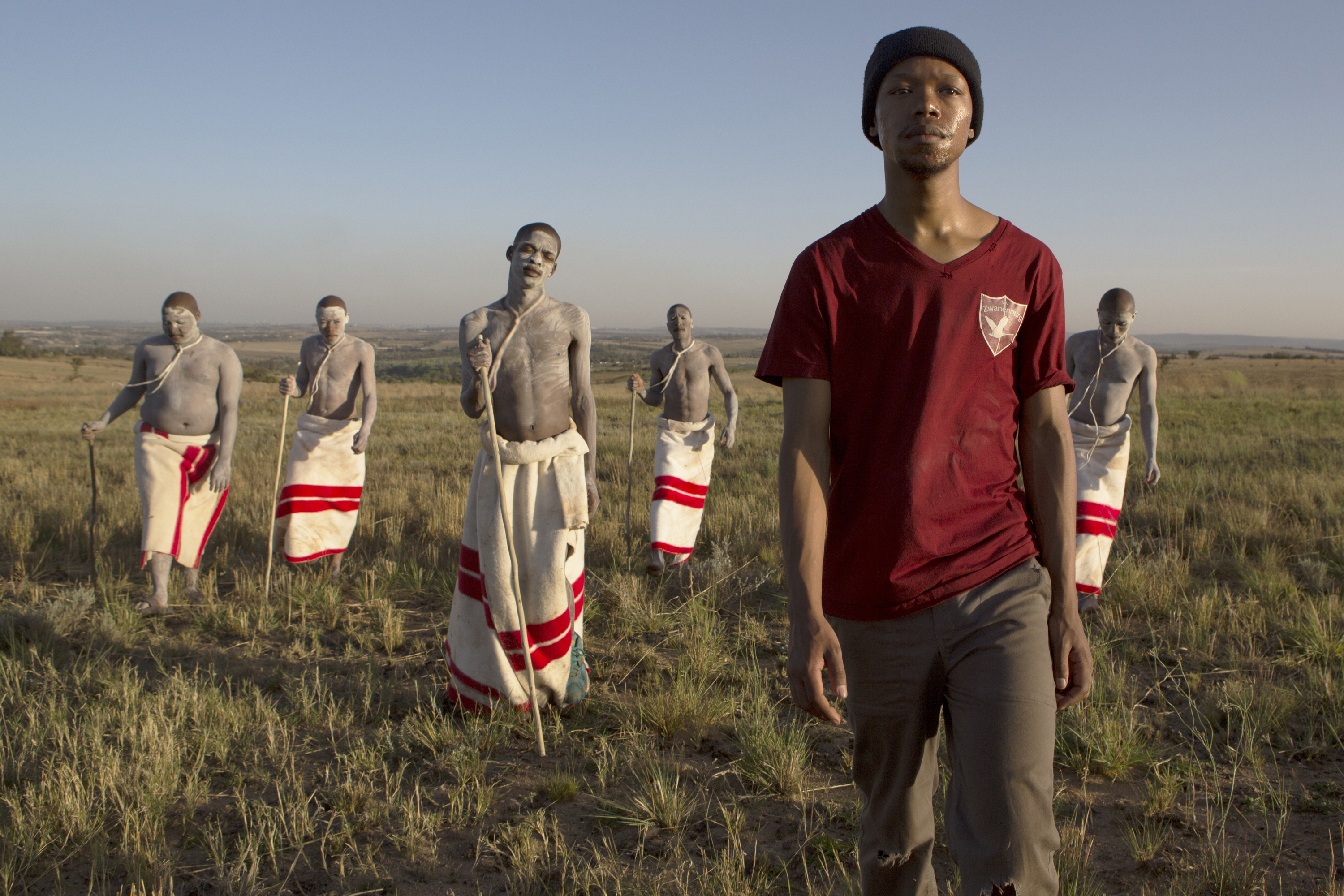The Wound – When Controversy Prompts Conversation

John Trengove’s debut feature and Oscar-shortlisted film, THE WOUND (INEXBA), has been bestowed with accolades and critical acclaim; going on to sweep the South African Film and Television Awards this past month. With such success, there was always bound to be a degree of controversy. As with any hard-hitting film that delves into themes of sexuality, masculinity and culture; finding a consensus can be difficult, if not impossible.
The controversy in question focuses on the way in which the film handles its depiction of the Xhosa ethnic group and the rite-of-passage ceremony these young men are put through as they transition to manhood. A call to ban the film was effectively successful in South Africa but has since been overturned, allowing it a full run in cinemas. Critics of the ban and controversy have pointed to an inherent homophobia that underlines the backlash – claims that are exacerbated by the fact the film hadn’t even been released when the controversy began to emerge.

Nevertheless, isn’t any dialogue surrounding a LGBT film helpful? Isn’t a film like this essential in reaching out to queer black men and women in the 8 million strong Xhosa ethic group? Shouldn’t Cinema provide a voice to those who are oppressed?
First and foremost we must address the very nature of the controversy and how some have argued that the film exposes private and secretive cultural traditions. Furthermore, critics have contended that the filmmakers had no right to explore these customs; attacking the film as an appropriation and distortion of their culture. However, the films depiction of these traditions is never exploited. Rather, director John Trengove directly avoids graphically depicting the ceremonial event and maintains a level of ambiguity that respects the culture but also underlines the focus of the film: a love affair between two men.
When a film such as THE WOUND is classified as R-rated and essentially deemed ‘pornographic’, isn’t it essential to debate these issues? Oppressive and draconian reactions to the tougher aspects of the film are an attack on both free-speech and art itself. With cinema, audiences are given the opportunity to submerge themselves in different cultures, ideas and mind-sets. To be transported, shocked and even inspired.

John Trengove argues that the setting of the film is in direct resistance to ideas perpetuated by many African leaders; some whom have suggested homosexuality is un-African and a symptom of western decadence. In an interview with Peccadillo our friend the film’s director stated: “We knew we wanted to tell a story about same-sex desire in a specifically African culture”, directly challenging African taboos around homosexuality that has been embedded into their culture. The filmmaker’s bold storytelling not only opposes these beliefs, it also encourages a much-needed conversation.
Devoid of the freedom that cinema can provide, people are bound to be more close-minded, more Orwellian and more muted. Cinema – no matter how hard-hitting – gives us all a voice.
So, endeavour to go and see THE WOUND when it hits UK cinemas on 27th April 2018; make up your own mind about the film and engage in a much-needed dialogue with those around you. That’s what Cinema is all about!
Related Articles
- Campbell X and THE WATERMELON WOMAN
- MARIO a revealing look at homosexuality in The Beautiful Game.
- Meet the Amatos – with THE CIAMBRA Director Jonas Carpignano
- Tamara Shogaolu talks about HALF A LIFE from Boys on Film 18: Heroes
- All about “Buddy”, in Boys on Film 18: Heroes.
- It’s All About Frankie from BEACH RATS
- BEACH RATS – The Origin
- Maysaloun Hamoud director of IN BETWEEN
- The Boys are Back for Christmas
- 50 Years What to Watch
